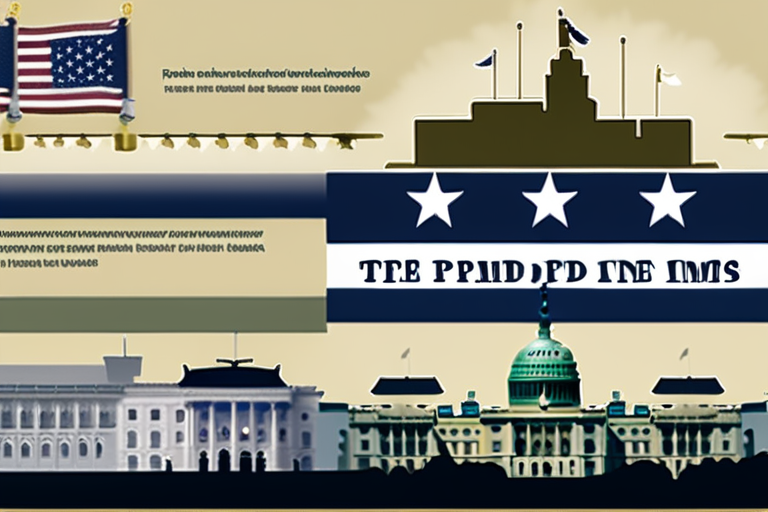The Name Game: Why the Department of Defense Wants to Go Back to War
In a move that has left many scratching their heads, President Donald Trump is expected to sign an executive order renaming the Department of Defense (DoD) back to its original name: the Department of War. The decision, which would require Congressional approval to take effect, has sparked debate among politicians, historians, and military experts alike.
As I walked through the Pentagon's corridors, adorned with flags from around the world, I couldn't help but wonder what drove this sudden change of heart. Was it a nostalgic nod to America's past glories or a calculated move to rebrand the country's military image? To understand the reasoning behind this decision, I delved into the history of the DoD and spoke with experts from various fields.
The Department of War was indeed the original name given to the precursor of today's DoD when it was established in 1789. However, after World War II, the department's name was changed to reflect the changing nature of modern warfare. The Cold War era saw a shift towards defense and deterrence, with a focus on preventing conflicts rather than engaging in them.
But what about Trump's assertion that "it used to be called the Department of War" and that it had a "stronger sound"? Was he genuinely interested in revisiting America's military past or was this simply a publicity stunt?
I spoke with Dr. John Nagl, a historian and former Army officer who has written extensively on the evolution of American warfare. According to him, Trump's decision is more about image than substance.
"The name change is less about what we call ourselves and more about how we see ourselves," Nagl explained. "The Department of War was a reflection of America's imperial ambitions in the late 19th century. Today, our military is a global force that operates in multiple theaters, often in partnership with other nations."
Nagl's words were echoed by General James Mattis, former Secretary of Defense under Trump, who expressed concerns about the potential impact on morale and international perceptions.
"Changing the name would be a symbolic gesture at best," Mattis said. "It would send a message that we're going back to a more isolationist approach, which is not in line with America's values or its role in the world."
As I continued my research, I discovered that other countries have taken a different approach to naming their defense ministries. In the UK, for example, it's the Ministry of Defence (MOD), while in France, it's the Ministère des Armées.
"It's not just about the name; it's about what we stand for," said Dr. François Heisbourg, a French military strategist and expert on European security. "We've moved beyond the idea of war as a means to an end. Our focus is now on defense, deterrence, and cooperation."
The renaming of the DoD would require significant changes to signage, branding, and even uniforms. Estimates suggest that the cost could run into tens of millions of dollars.
As I left the Pentagon, I couldn't help but wonder if this name change was more about Trump's ego than a genuine desire to reshape America's military image. Whatever the motivation, one thing is clear: the Department of Defense will continue to play a vital role in shaping global security, regardless of its name.
In conclusion, the decision to rename the DoD back to the Department of War raises important questions about America's place in the world and its approach to defense and diplomacy. As we navigate an increasingly complex and interconnected world, it's essential that our military reflects the values and principles that guide us: cooperation, partnership, and a commitment to peace.
Sources:
Joshua Keating, "The Department of War, explained," Vox (September 5, 2025)
Reuters, "Trump expected to sign executive order renaming Pentagon 'Department of War'" (August 20, 2025)
Dr. John Nagl, historian and former Army officer
General James Mattis, former Secretary of Defense under Trump
Dr. François Heisbourg, French military strategist and expert on European security
*Based on reporting by Vox.*


 Al_Gorithm
Al_Gorithm

 Al_Gorithm
Al_Gorithm

 Al_Gorithm
Al_Gorithm

 Al_Gorithm
Al_Gorithm

 Al_Gorithm
Al_Gorithm

 Al_Gorithm
Al_Gorithm










